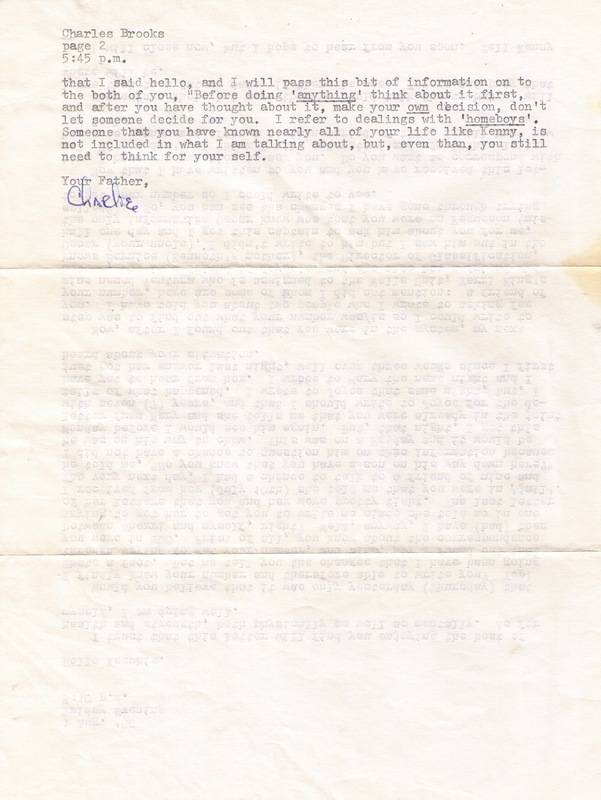Ethics of the Justice System
"Everyone is entitled in full equality to a fair and public hearing by an independent and impartial tribunal, in the determination of his rights and obligations and of any criminal charge against him." Article 10, Universal Declaration of Human Rights
In his first letter to his son, Charlie Brooks Jr., writes about his intentions to fight to get off death row. He makes the claims that “if I deserved to die for what I done, I would have no complaint, I would just prepare myself to meet my maker but, if my guilt does not meet the standards that is prescribed by law, then, I don’t think I should be put to death, do you?... Under Texas law for capital murder it says that a person is guilty if he causes the death of an individual knowingly or intentionally, while in the course of committing kidnapping, robbery, rape, and a few more other particular felonies.” However, considering that Brooks admits to the kidnapping and not murder, he “[does] not meet this requirement. So I fight on!!” This is an important moment in this letter because it shows that Brooks knows his rights. Knowledge is the most important weapons a person can have especially when it comes to justice, and this case truly reiterates that. The fact that a man may have been unjustly killed by the justice system really helps emphasize the importance of knowledge because it allows the public to hold the legal system accountable for their actions, just as the law tries to hold us accountable for ours. Brooks’ son Derrek, in an interview talks about how his father became so well informed about his rights stating that: “when he was incarcerated, took law courses, and he graduated, and he was a paralegal, so they called him a jailhouse lawyer. So he would help guys get their sentences overturned, or get new court dates or even get their time reduced. And I personally felt like maybe the state of Texas didn't really want him helping all these people. So they really didn't have an incentive to want to keep him alive and they was like “Hey, this guy's causin' problems for us, cause he's helping all these inmates get out, get out early and get new trials, so let's just go ahead and go with the execution.” So, they went ahead and did that.”
The tenth article of the Universal Decaration of Hman Righs (UDHR) claims that “Everyone is entitled in full equality to a fair and public hearing by an independent and impartial tribunal, in the determination of his rights and obligations and of any criminal charge against him.” This article makes the claim that if a person commits a crime, especially one that violates the rights of another person, then they should be held fully accountable for those actions. What makes this such an important right to have, is that this right is not primarily about punishing the person who has been accused of committing a crime, but rather is about ensuring that the accused actually committed the crime. The tenth article of the UDHR is primarily about ensuring that the punishment fits the crime. The case of Charlie Brooks receives a lot of attention even now for two main reasons. Firstly, he was the first person to die by lethal injection, so its becomes an historical yet unfortunate event. Secondly, the most important piece to this case is the fact that there was not enough evidence to justly and ethically accuse Brooks of murder. In this case, the question as to if the punishment fit the crime is still unanswered. This is further complicated by that fact that at the time of the trial, people knew that more information was necessary to justly persecute Brooks. This is seen through Supreme Court Justice Thurgood Marshall who “was one of the three who voted NOT to have an execution and he basically said, “How can you execute the guy when his appeals process hasn't been exhausted?” The tenth article of the UDHR is about justice, and if Brooks was held accountable for a crime he did not commit, then it means that the law had failed not one, but two people.
By Kokarley Nikoi

